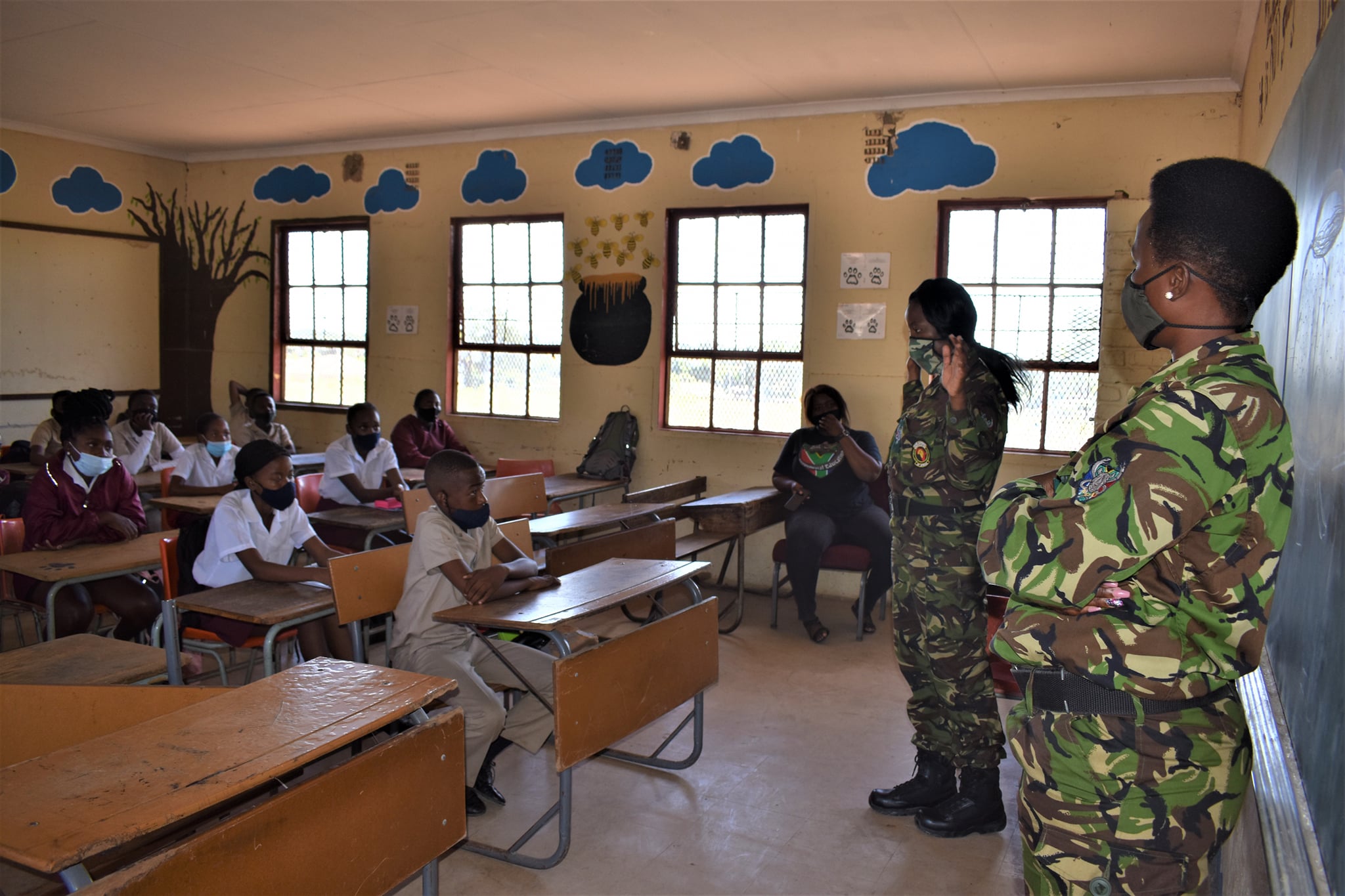

Education of rural children is critical to have the next generation be resilient and part of protecting wildlife as their natural heritage.
Children will participate at schools with weekly and ongoing environmental education whilst cooperating other subjects in the program as well such as English, maths, art etc to get the maximum amount of benefit of education. The environmental education classes focusses on basic environmental teachings and nature conservation. Schools are uplifted through redecorating classrooms to make them more comfortable learning environments for both teachers and learners. Learners take trips to the protected area to experience and learn about wildlife first hand.
Outside curriculums are made available for children wishing to continue after the school program. These programs consist of the Scout program and assisting Environmental Monitors to keep the community clean, assist with taking care of pets and work animals and cattle. Not only does this benefit the animals through the care they receive through the program, but also teaches children the importance of taking care of animals, which will translate to the importance of taking care of wildlife.
- Schools willing to participate in the program
- Environmental Educators from the local community (trained by the program)
- Study curriculum to ensure maximum benefit and results
- Funding for upliftment of classrooms and salaries for Environmental Educators.
The program has had a great impact on the children with regards to the importance of education and the protection of animals/wildlife and nature. There has been a need to expand the program outside of school hours as many children who graduate from school or are no longer in the Bushbabies class have been keen to continue learning about nature.
Communities where the Black Mambas and Bushbabies program are both present, the positive impact on the community has been the greatest.